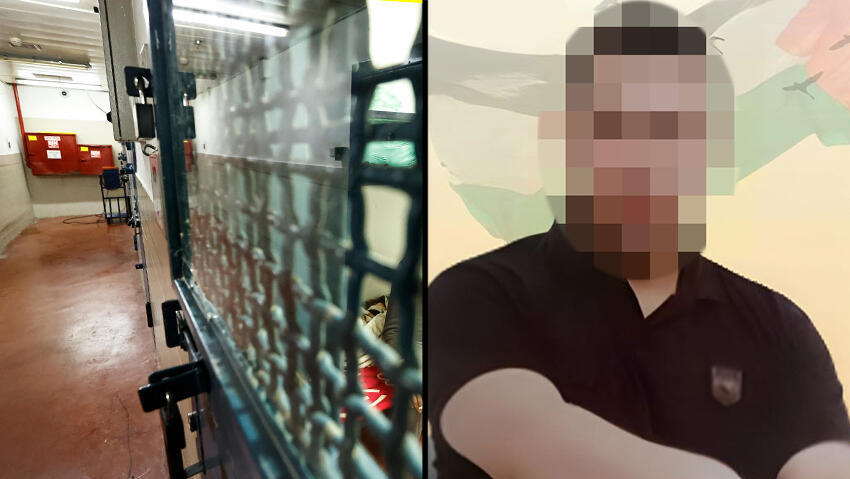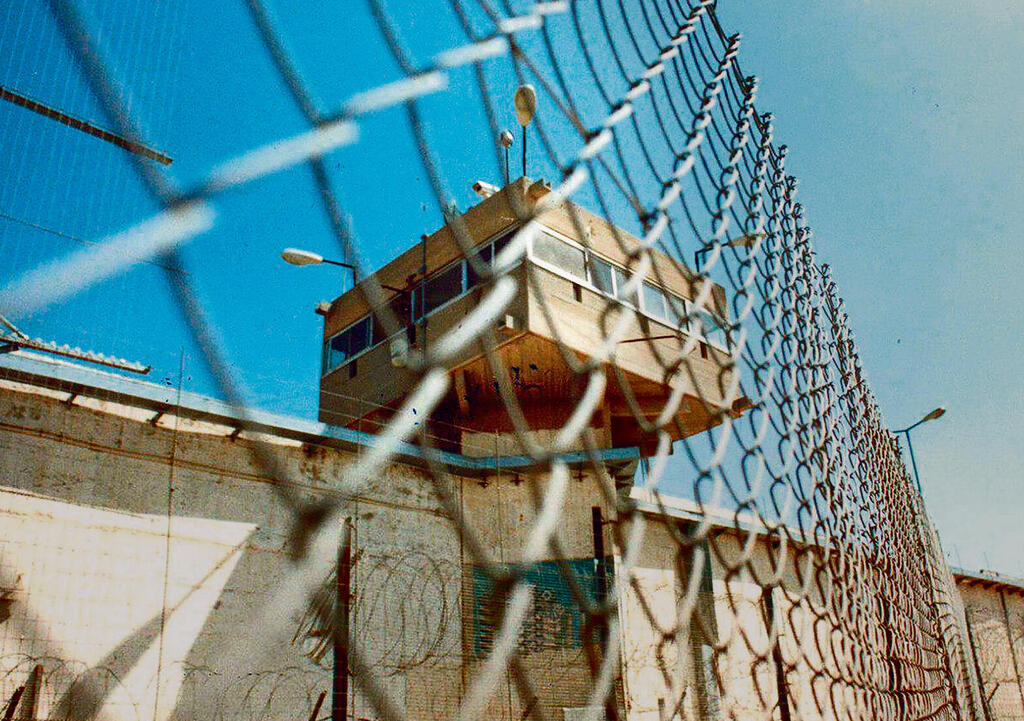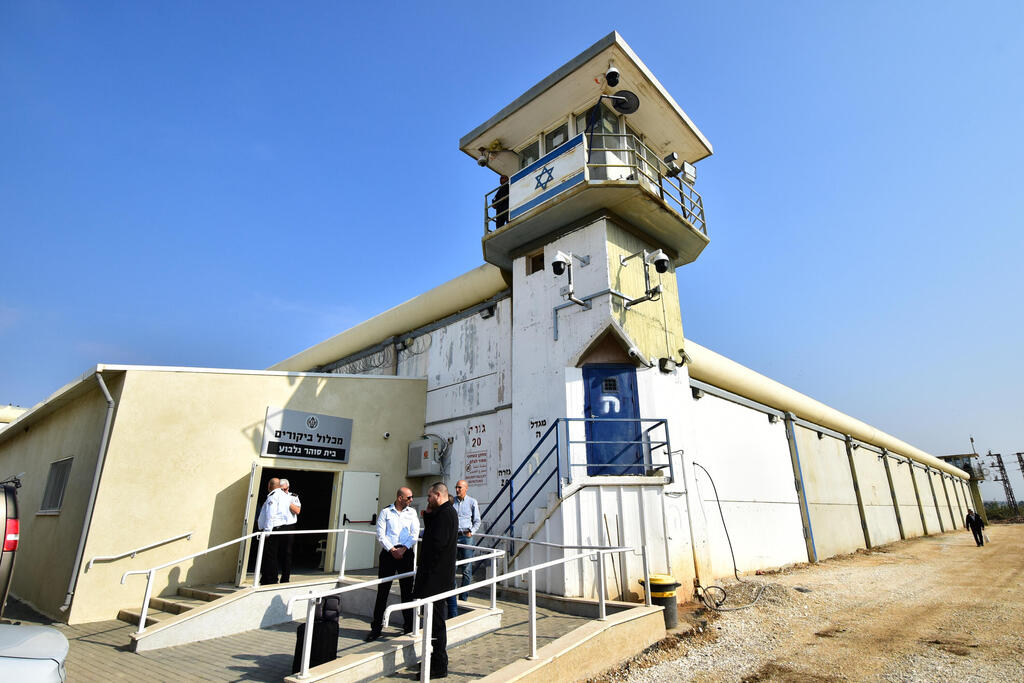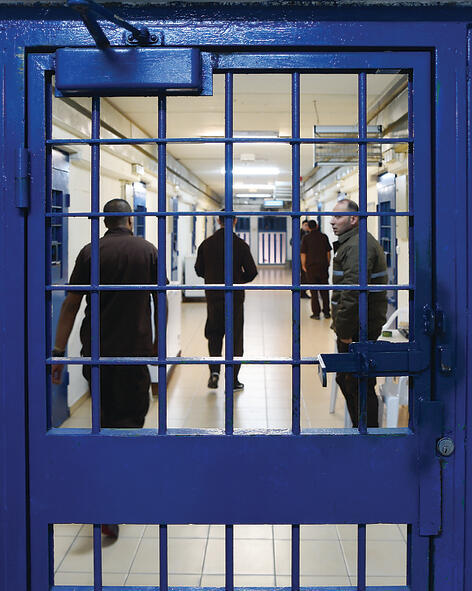Getting your Trinity Audio player ready...
The litany of incidents involving sexual offenses that have been uncovered inside the Israel Prison Service in recent years, with the latest involving five female prison guards under investigation for intimate relationships with a terrorist in Ramon Prison, prove the necessity of removing IDF soldiers from serving in these institutions.
More stories:
These continuing incidents show the Israel Prison Services’ degrading ethics and moral compass. Two IDF soldiers who have enlisted in the Israel Prison Service and have served in various positions in Israeli prisons told Ynet about their experience following their discharge from the military.
Dana (assumed name): 'Palestinian prisoners have a lot of power in prison'
"I enlisted in the IDF as a soldier. When I arrived at the recruitment center, I hoped I’d be offered some interesting roles. I didn't want to spend my military service doing a routine job, I was looking for a challenge," Dana says.
“They offered me to serve at the Israel Prison Service and I immediately liked the idea. It was always a fascinating place to me, and I thought serving as a prison guard could be a meaningful experience for me, and it was. But I wouldn’t recommend it to anyone else.
“I didn't encounter any sexual harassment from either the prison guards or the inmates themselves in the prison where I served. There was only was such incident when I just arrived at the prison, where a Palestinian prisoner whistled and winked at me. My commanding officer, who was present and saw everything, dealt with it immediately.
4 View gallery


Ramon Prison, Palestinian terrorist suspected of having relations with prison guards
(Photo: Gadi Keblo)
“The other inmates also approached me and told me this behavior wasn’t acceptable to them, and assured me it wouldn't happen again. He was sentenced and transferred to solitary confinement," she says.
“I was happy and felt safe knowing my commander was taking care of me. However, I quickly discovered that Palestinian prisoners have a lot of power in prison. Almost every one of their requests is granted, from additional meat dishes that would go past their daily quota, to their daily routine. I soon realized that sharing my opinion and insisting on working strictly according to regulations would only complicate things for me there.
“During my service, I had personal issues after my mother was diagnosed with cancer. I went through very tough days, and there was no one in the Israel Prison Service who could’ve listened and helped me.
“We had a welfare officer in our division, but it always felt like there was no one to truly talk to, that you interested no one. You had to report in, stay silent, and do your job,” according to Dana.
“Looking back, I can now say that the Israel Prison Service doesn't know how to deal with challenges faced by young soldiers who serve in it; the IDF is much more experienced in this regard. The moment you arrive there, the IDF doesn’t care for you anymore, even though you’re technically a conscripted soldier.”
Moran (assumed name): 'We quickly learned it's better to keep quiet'
"When I enlisted in the IDF and was sent to serve in the Israel Prison Service, I was very excited. At that time, I thought it was a role with a lot of power and meaning behind it. Guarding terrorists and ensuring that they don't continue to carry out terror acts from within the prison was something I thought was interesting,” Moran tells Ynet.
“To those who aren’t familiar with the actual military service in the Israel Prisons Service, it can seem like a perfect place to spend your service. It has a different framework compared to the IDF, as well as the opportunity to integrate into the Prisons Service after you’re discharged, giving you stable job opportunities.
“From the outside, the Israel Prisons Service looks like a strict and tough organization. It was only when I arrived at the prison after completing my basic training that I realized what I signed up for. Suddenly, I found myself among many staff members who weren’t in the same age group as me. There was a sexist atmosphere in the prison, including prisoners who would check me out,” she says.
“You always felt very uncomfortable there. I always tried to maintain a tough presence in front of the prisoners, but every time a Palestinian prisoner looked at me, I froze. Nevertheless, there was zero tolerance for any kind of sexual harassment. No one dared touch me.
"I served with other female and male soldiers, but most of the staff I served with were adults who had been working in the prison service for many years. At the end of my training, I realized there was no correlation between what I was taught about the prison and what was actually happening.
“I found myself in direct contact with terrorists who initially sensed my fear and exploited it. Nothing really prepares an 18-year-old girl who has just enlisted in the army for a situation where she needs to be in direct contact with terrorists. There were many instances where I found myself alone with these prisoners,” Moran says.
“The terrorists in the ward where I served felt free to disobey and laugh at me, and the worst part was that none of the staff members protected me. The prison guards were afraid of the terrorists.
“Our commanders kept telling us to report everything we see or any problems that arose, but we quickly learned that those who report anything usually get in trouble, and it's better to just keep quiet. I knew the position wasn’t for me only when I arrived at the prison, but by then, it was too late to go back to the IDF."




